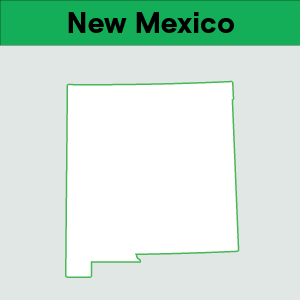Dropshipping & sales tax in the post Wayfair era
by November 21, 2023
Please note: This blog was originally published in 2019. It’s since been updated for accuracy and comprehensiveness.
This guest post is from our partner Michael J Fleming at Sales Tax and More.
In June of 2018, the sales tax world was turned upside down when the U.S. Supreme Court overturned 51 years of precedent requiring a seller to have a physical presence before a state could require the seller to collect sales tax. The Wayfair decision was far-reaching and impacts virtually every industry and potentially every company selling in or into the US. However, I do not believe that anyone has been impacted greater than dropshippers.
Many sellers who never had to collect sales tax, perhaps anywhere, are now realizing they may have a responsibility to collect tax in multiple states. To complicate matters further, vendors are finding they need to collect certificates in more states than ever before. So most sellers not only have to navigate determining where they collect taxes, but also how to avoid paying taxes to their vendors.
Even before Wayfair, we’ve seen a paradigm shift in the way that states approach exemption certificates. Historically, many states and auditors gave companies wide latitude in sales tax audits for situations where it was plainly obvious that a particular sale was for resale. However, over the last seven or eight years, we’ve seen a shift away from, “substance over form,” to “form over substance.” More and more state auditors seem to view exempt sales as low-hanging fruit, or, in other words, easy revenue. We expect this trend to accelerate as a result of Wayfair.
What is dropshipping and why is it so confusing for sales tax?
A typical dropshipping scenario is when a seller makes a sale to a consumer when the seller doesn’t own the inventory. The seller then turns around and buys the item from a vendor and then asks the vendor to ship the item directly to the consumer. So we have three parties involved in the process. When looking at the sales tax implications, many sellers and vendors alike look at this as one transaction. But, it is actually two transactions, and we must look at them separately to begin to understand.
The first transaction is fairly straightforward. If a seller has nexus they should be registered, collect and remit the sales tax from their customers. If the seller doesn’t have nexus, he or she has no obligation to do anything. (We will come back to nexus shortly.) The second transaction between the seller and the vendor is where much of the confusion arises.
Most sellers and many vendors believe that a sale for resale is automatically tax exempt. Unfortunately, this is not true. If a sale for resale is not documented properly, a state will not consider it exempt and require a tax on the transaction. Missing or invalid certificates are a leading cause of large assessments in sales tax audits because of these false beliefs.
To get to the root of confusion surrounding the second transaction, we need to review some sales tax basics.
- Sales of tangible property are generally sourced to the delivery state.
- Sourced means the state where the rate is charged.
- Once registered in a state, sales tax (or a certificate in lieu of the sales tax that is acceptable to the delivery state) must be collected on every transaction.
- The nexus of the customer never plays a role in where or when tax is charged.
The nexus of a customer never determines when or where tax is collected.
When the seller is registered in the delivery state we usually don’t see many problems. The seller collects the tax from the consumer in the first transaction and remits it to the state. In the second transaction, when the vendor asks for a valid resale certificate, the seller can provide it without any problems.
Where it gets complicated is when the seller is not registered in the “ship-to” state. While the seller has no obligation to collect sales tax and is actually prohibited from collecting the tax if not registered, the vendor must collect the sales tax or a valid certificate in lieu of the sales tax from the customer.
In our scenario, the seller is the customer in the second transaction. So if the seller cannot provide a valid certificate in the ship-to state, the vendor must collect the tax from the seller.
We hear from many sellers that they don’t have nexus, so they shouldn’t have to pay the tax. In this case, the seller is the customer and the customer’s nexus is never a factor of where or when tax is collected. In this instance, if the vendor is registered they have no choice but to collect the tax.
Some states are very flexible on resale documentation if the seller doesn’t have nexus.
Sellers must provide an acceptable certificate for every state where items are shipped in order for the seller to avoid being charged tax by the vendor. However, that does not mean the seller is required to register in every state in order to issue an acceptable certificate. If the seller does not have nexus, then he or she needs only to provide a certificate that is acceptable to the ship-to state in question. There are 36 states that will accept some form of documentation without registration.
Here is a list of the types of documentation which may or may not be acceptable to a given state when the seller does not have nexus in the ship to state:
- Home state certificates.
- Consumer state certificates with no nexus statements.
- Consumer state certificates with no home state number.
- MTC multi-state certificates with home state numbers.
- SST multi-state certificates with home state numbers.
- Affidavits or statements of no nexus.
- Pass through of a valid consumer certificate.
- Sales tax permits.
The key is to know which state will accept which documentation in your situation.
The 10 states where registration may be necessary to issue a valid certificate.
The bad news is that in 10 states: CA, CT, DC, FL, HI, LA, MA, MD, MS, and TN, it may be likely that the seller will need to register to collect sales tax to issue a valid resale certificate. In FL and LA, sometimes a registration may not be required depending on where the vendor has inventory stored.
It is important to note, while a seller may not have a requirement to register and collect tax, it may make good business sense for a seller to voluntarily register to collect sales tax in one or more of these 10 states. Once the seller registers, they will have to collect sales tax but the compliance costs usually pale in comparison to having to pay the vendor sales tax out of their profits.
What is nexus and why is Wayfair making sales tax compliance tougher?
Nexus is a fancy word that just means connection or link. Before a state can require you to collect their tax you have to have some sort of link or connection. Prior to Wayfair this connection had to have some sort of physical component. The U.S. Supreme court has now said physical presence is no longer required and an economic presence can create nexus. This means that just having a certain level of sales or transactions in or delivered into a state can create nexus. The most common thresholds are $100,000 in sales or 200 transactions. It is the 200 transactions that trap most sellers and vendors. Here’s a complete listing of the thresholds in each state that has economic nexus laws.
A moderately successful dropshipper operating out of a no-sales-tax state like Oregon, who has never had a responsibility to collect tax anywhere, may now have a responsibility to do so in 10 or 20 or more states. A very successful seller may have to be registered to collect sales tax everywhere.
Just as sellers are discovering they potentially have nexus in many more states, so are the vendors. The vendors will be asking for certificates in more states. Many vendors will not know what alternative certificates they can accept. Sellers and vendors may have to help educate each other to prevent relationships from imploding.
And speaking of certificates, alternative documentation can only be used when a seller does not have nexus. Many sellers who have been using alternative documentation may no longer be eligible. We may likewise see many vendors tightening up their rules for what documentation they will accept. For sellers, the improper issuance of a certificate may result in criminal penalties, so it’s important to stay on top where nexus is being created.
What about foreign sellers?
Foreign sellers face the same issues as U.S. sellers. We envision states will become increasingly aggressive over the next two years, pursuing both domestic and international companies. Foreign sellers can have an economic presence just as easily as a domestic company. While it may currently be harder to pursue foreign companies, we believe the legislation will eventually be passed to making it easier for states to enforce sales tax compliance on foreign sellers.
What should dropshippers do now?
We believe that dropshippers, like all sellers, must review their economic footprint now and periodically. However, having nexus doesn’t mean that a seller must run out and register right away. If a seller has nexus, the next step is to determine if what they sell is taxable and if their exposure is material. When we say material, we mean that common sense must be used to see if it makes sense to comply.
TaxJar has some great tools to help you determine where you have nexus. If you have questions or would like additional help with nexus, taxability, registrations, or resale certificates or any other else please reach out to salestaxandmore.com.
Mike Fleming is the founder of Sales tax and More, a full-service state tax consulting and solutions firm with clients around the world. Sales Tax and More offers services in all 50 states, U.S territories, and Canada. For information on how we can assist, you can reach out at [email protected] or visit our website at www.salestaxandmore.com.







